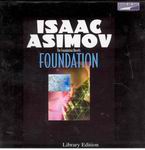
 Chrysalis
Chrysalis
By Ray Gross; Performed by a Full Cast and a Narrator
1 Mp3 File – 2 Hours 6 Minutes [UNABRIDGED]
Publisher: AudioCinema.com
Published: 2006
Themes: / Science Fiction / Science / Religion /
Struggling genius Graham Godfrey, together with his select team of young discoverers, is led from Georgetown University to the mysterious Bainbridge Institute by his ambitious uncle in a quest to harness a new quantum energy source. But the project takes an unexpected turn and unfolding events thrust Graham into his haunted past where a dark secret shrouds an unspoken family tragedy.
Audio Cinema’s Chrysalis is a screenplay done for audio – when you listen what you’ll hear is a new hybrid – you could think of it as a complete table reading of a film script by the cast of a film prior to the filming. Added to the reading are a soundtrack and sound effects. A narrator reads all the non-dialogue lines in the script, in an conspiritorial, almost whispering, voice. The character’s lines are all performed by individual actors. Sound effects and music accompany the action. Now you might think this sounds like audio or radio drama, but it isn’t, nor is it a full cast reading of a novel, instead it is something I’ve never heard before, a completely new thing. This is a movie screenplay 9/10ths of the way to completion – a complete movie without the visuals. The experience is comparable to listening to the Descriptive Visual Service® found on some WGBH (PBS) television dramas.
The script is interesting and the production moves along at a nice clip. There are few, difficulties here and there, the narrator mispronounces “facade,” one or two other minor things ruffle the experience. I quite liked the ideas. The plot is thoughtful and in some respects echoes like a happier version of Theodore Sturgeon’s short story Microcosmic God. In structure it’s like the 1983 film WarGames. I worry about the format though. I’m a fan of audio tracks of film and tv. Sometimes the narration, the sound of the story, will tip you to things you’d have missed in the visual landscape. If you take the audio track from Babylon 5 and just listen to an entire show you’ll get 90% of the story. Stories, good stories, are idea driven, whether it is narration or dialogue, good ideas come from the soundtrack not the visuals. The ideas in Chrysalis resonate. I don’t need to see the movie of Chrysalis, I’ve heard it.
Posted by Jesse Willis




